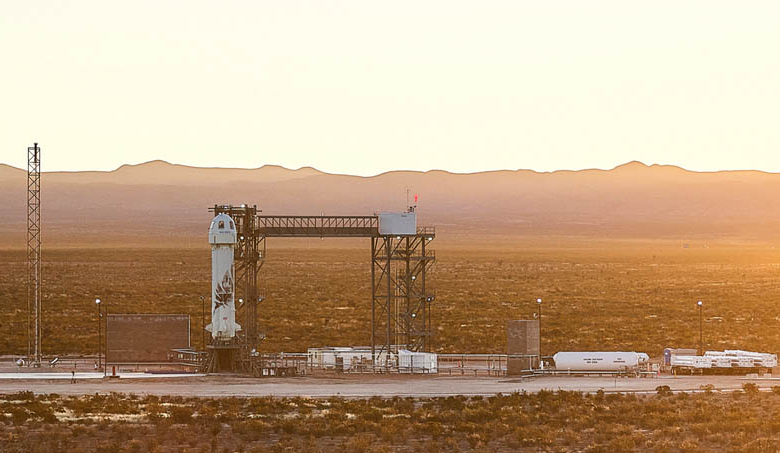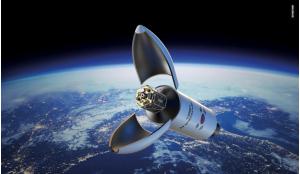Blue Origin has completed the flight readiness review for its first crewed launch of its New Shepard vehicle, and is good to go, say the aerospace company.
"We've looked at all the vehicle systems, including hardware, software, procedures and launch crew readiness," Blue Origin lead flight director Steve Lanius said during a news conference 18 July. "We are not currently working any open issues, and New Shepard is ready to fly."
This landmark mission that is set to fly at 9:00 am EDT (13:00 GMT) on Tuesday 20 July – a date that also coincides with the 52nd anniversary of the Apollo 11 moon landing – will carry Blue Origin founder Jeff Bezos and three others on a 10 minute flight to the edge of space.
Bezos will be the second billionaire to reach suborbital space in less than two weeks, having been pipped to the post by Virgin Group founder Sir Richard Branson on 11 July.
During his flight on the VSS Unity, Branson and crew reached an altitude of 87 kilometres (53.5 miles); a height that Blue Origin say is short of the Kármán line; a boundary between Earth's atmosphere and outer space defined by many to be 100 kilometres (62 miles) above Earth's mean sea level.
“Only 4 percent of the world recognises a lower limit of 80 km or 50 miles as the beginning of space. New Shepard flies above both boundaries,” the company pointedly wrote in a Tweet shortly before Branson’s flight.
Jeff Bezos will be accompanied by his brother Mark and two other passengers who will break two longstanding astronaut age records on the flight’s debut; that of 82 year old trailblazing aviator Wally Funk, and 18 year old physics student Oliver Daemen.
Funk, who was personally invited by Bezos to join him aboard the flight, will become the oldest person ever to reach space, and Daemen will be the youngest.
Funk is renowned for being part of NASA’s Mercury programme, but was excluded because of her gender, as at the time, women were not allowed to be astronauts or military pilots until the 1970s.
She will be five years older than the previous title winner – John Glenn – who was 77 when he flew into space as part of the space shuttle mission STS-95 to study how microgravity affects aging.
Daeman on the other hand will supplant Gherman Titov as the youngest person to reach space. Titov was nearly 26 years old when he became the second man in space on the Vostok 2 orbital mission in August 1961.
Currently taking a gap year before starting studies at the University of Utrecht, Daeman is the son of Eline Daemen Dekker, a former flight attendant who is now an ambassador in her husband’s real estate company.
Oliver’s father Joes Daeman, is the chief executive and founder and Somerset Capital Partners. He was one of the bidders for a seat on the first crewed flight but lost out to an anonymous bidder who paid a reported $28 million at the auction.
After a “scheduling conflict” prevented the unidentified winner from attending Tuesday’s flight, Daeman who had secured a seat on the second New Shepard flight, was moved up ahead of schedule when the seat became available.
Daeman’s flight will mark the start of paid space-tourism flights for Blue Origin and has plans to loft more paying passengers again as early as the September-October timeframe, company representatives said Saturday.
"We intend to have two more flights this year, in 2021, for a total of three [crewed] flights, and many more to come in the future," Ariane Cornell, Blue Origin's director of astronaut sales, said during today's press conference. "So, we have already built a robust pipeline of customers that are interested."











